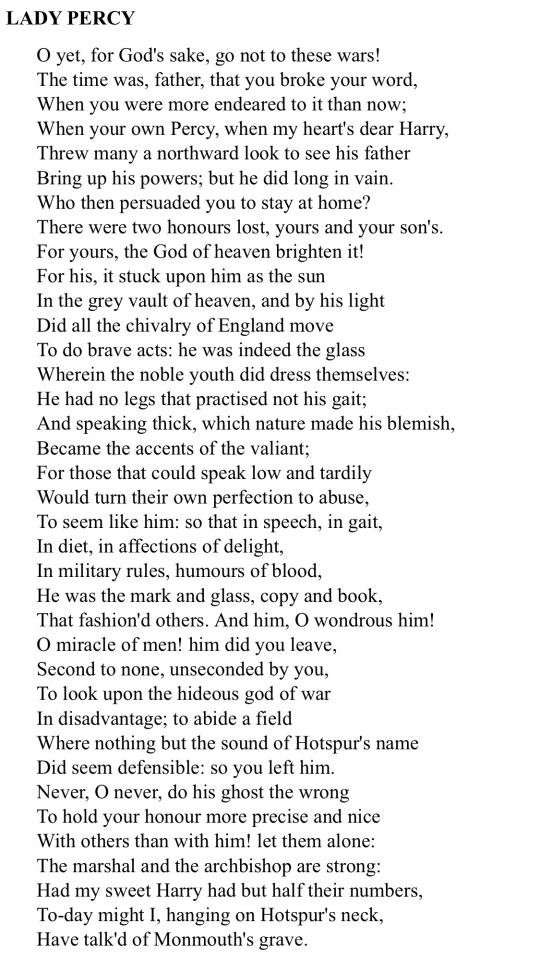

- #And heard thee murmur tales of iron wars how to#
- #And heard thee murmur tales of iron wars archive#
But, right after, I was in desert training in Fort Irwin, California and there was a there was a chain of events. I was a medic initially, then an infantry officer right after the first Gulf War and I spent most of my time training during the first Gulf War. I joined at a time when the Navy was jam-packed because Top Gun had come out, but nobody was joining the army because it had movies like Stripes and Private Benjamin and it was post-Vietnam. What's your background? You were in the military. So what I've decided was to stop just talking about it and do what I've been doing for myself, for other veterans, which is using theater, specifically Shakespeare and classical actor training, interwoven with some modern psychology techniques to unwire from war, to rewire for society or to DE-CRUIT fellow veterans and myself. And there's weeks and weeks and months of this work-but when we get out of this, none of it’s undone. So they have to dehumanize, and, as I talked about, wire us for war. In that critical moment it's really difficult to actually get people to kill another human being. But essentially we know from history that part of what the military has to do to get us to kill regardless of what our job is, water purification specialist or infantrymen, we have to dehumanize the people we’re fighting, because statistically human beings do not want to kill others. And in the military, as I talk about on the show, we're wired for war, and it doesn't matter what branch, Army, Navy, Air Force, Marines, or Coast Guard or what your job is, everybody learns to fire the rifle at human beings-and for a purpose, I'm not demonizing the military. We have a recruiter that helps prepare us for every aspect of life in the military going from civilian life to military life. Stephan Wolfert: In the military, we're recruited but we're never decruited.
#And heard thee murmur tales of iron wars how to#
DE-CRUIT combines classical theater training, mindfulness practice, personal narrative, and the plays of William Shakespeare to teach veterans how to use theater to process and share their experiences, so they can finally come home.

And believing that Shakespeare and theater could be as healing for others as it is for him, Stephan has worked for decades with veterans, eventually forming the non-profit, DE-CRUIT. Years later, he created the one-man show, Cry Havoc, which mixes Stephan’s own experiences in the military, his return to civilian life, and his observations about both, with pertinent monologues from Shakespeare’s plays. Stephan changed careers, became an actor, and immersed himself in Shakespeare. But he found the theater-and particularly, the work of Shakespeare, who peopled so many of his plays with soldiers and veterans, who have faced bloody losses.

I’m Josephine Reed.Īfter years in the military, Stephan Wolfert wanted something else, but he had a difficult time transitioning back into civilian life. And this is Art Works the weekly podcast produced at the National Endowment for the Arts. Jo Reed: You just heard an excerpt from the one-man show, Cry Havoc, performed and written by actor and US Army veteran Stephan Wolfert-with an assist from William Shakespeare. We were not rewired for society-and then, to making matters worse, we’re severed, amputated from our community of comrades, our structure, our mission, our purpose, our support! And we’re put right back into communities that do not know how to deal with this, do not understand our experience, and we don’t know how to adjust-no training.

We were recruited at a psychologically malleable age, then we were wired for war-but at the end of our military service, we were not unwired from war. Stephan Wolfert: Well, I believe what happened to me, is what happened to all veterans in this country.
#And heard thee murmur tales of iron wars archive#
Music Credit: “NY” written and performed by Kosta T from the album, Soul Sand, used courtesy of the Free Music Archive


 0 kommentar(er)
0 kommentar(er)
